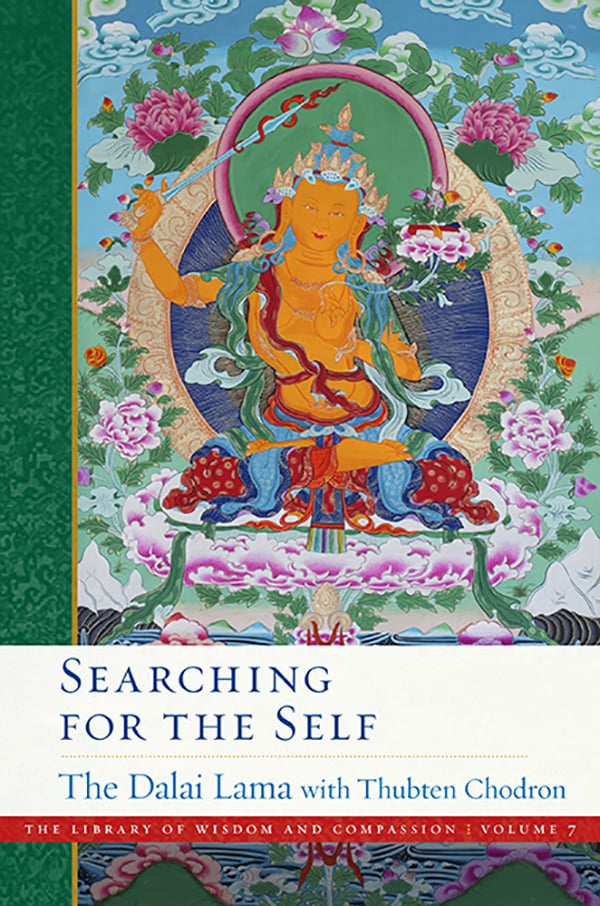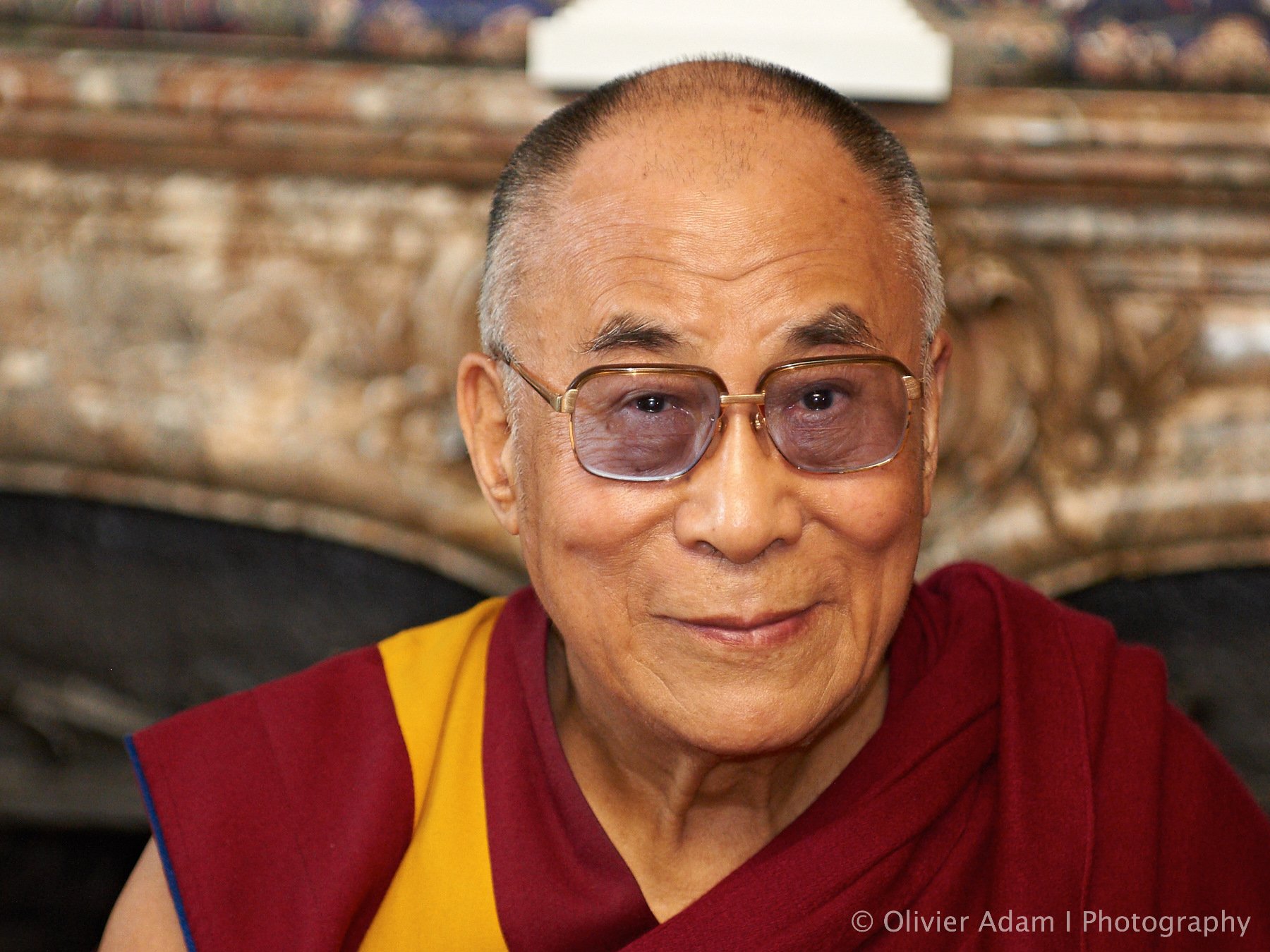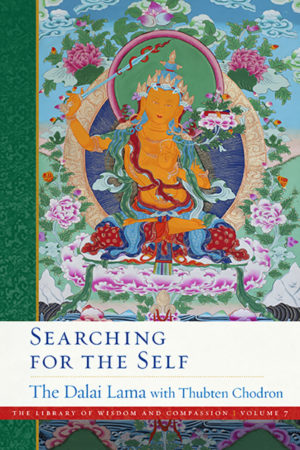
SEARCHING FOR THE SELF
In Searching for the Self the Dalai Lama leads us to delve deeply into the topic of the emptiness of inherent existence, presenting it from a variety of approaches while focusing on identifying our erroneous views and directing us to the actual mode of existence of all persons and phenomena.
Placing our study of reality within the auspicious context of a compassionate motivation to benefit all sentient beings, the Dalai Lama explains why realizing emptiness is important and what qualities are needed to do that, and he evaluates various tenet systems’ perspectives on this vast topic. He then helps us understand our perceptions and the mental states involved in both our ignorant and accurate cognitions. He examines inherent existence and other fantasized ways of existence that we seek to disprove through reasoned analysis and presents the Middle Way view that abandons all extremes. The closing chapters by Thubten Chodron discuss the three characteristics of impermanence, unsatisfactoriness, and not-self as explained in the Pāli tradition and show how meditation on these can lead to the meditative breakthrough to realize nirvāṇa.
Engaging in this investigation with His Holiness will challenge our deepest-held beliefs and uproot false ways of viewing ourselves and the world that are so habitual we don’t even notice them. Get ready to be challenged and intrigued, for realizing the nature of reality has the power to cut our defilements at the root and free us from cyclic existence forever!
Learn more about the Library of Wisdom and Compassion series.
- Hardcover
- 432 pages, 6 x 9 inches
- $29.95
- ISBN 9781614297956
- eBook
- 432 pages
- $19.99
- ISBN 9781614298205
“I am thrilled to see Searching for the Self. All the volumes in the Library of Wisdom and Compassion are highly cherished treasures—they are profound yet easily accessible. Searching for the Self will help to open your wisdom eye to investigate emptiness. With that understanding, you can fly in freedom without grasping at illusory objects.” —Geshe Lhakdor, director, Library of Tibetan Works and Archives, Dharamsala, India
“It is refreshing to come across such a clear and in-depth study of the Middle Way teaching of no-self and emptiness as found in the Mahāyāna and Theravāda traditions. This remarkable book opens the door to a wide and profound understanding of those teachings and to the path leading to their realization.” —Ajahn Sundara, author of Walking the World, Seeds of Dhamma, and Paccuppanna: The Present Moment
“This seventh volume in the Library of Wisdom and Compassion is undoubtedly the masterpiece of H. H. the Dalai Lama and Thubten Chodron. Searching for the Self not only deals with the heart of the Buddhist view on emptiness, which distinguishes it from the great monotheistic religions, it also discusses the approaches of Pāli and Chinese Buddhism on the ultimate nature. A brave, impressive, and convincing presentation toward a theory of “Buddhist ecumenism,” it enables Buddhists worldwide to speak in one voice about important issues that concern all of us today. At the same time, it gives non-Buddhists fresh insight into the world of Buddhist thought and practice.” —Dr. Carola Roloff (Bhikṣuṇī Jampa Tsedroen), Professor for Buddhism and Dialogue at the Academy of World Religions of the University of Hamburg
“With this book the authors have opened the door to a vast treasure of Buddhist ideas. Based on instruction given by the Dalai Lama to audiences around the world, it speaks directly to issues of the human condition. A valuable compendium of Buddhist philosophy that addresses both simple, grounded spiritual practice and the need to comprehend higher profound truths.” —Ian Coghlan (Jampa Ignyen), Monash University



